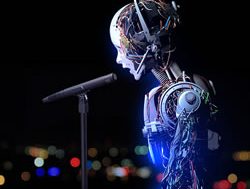Neve Mahoney* says that when trying to assess the ‘political correctness’ of humour, the topic of a joke is not as important as why it is meant to be funny, and its context.
 There has been a resurgence in the “political correctness is killing comedy” dialogue that pops up every few years or so.
There has been a resurgence in the “political correctness is killing comedy” dialogue that pops up every few years or so.
Some of the newest proponents are Kevin “Bloody” Wilson, Rodney Rude and Austen Tayshus in the Daily Telegraph, whose views can be summed up in the quote: “The soft new generation of PC-wary comedians need to grow some balls.”
There seems to be a sense from some that comedy nowadays isn’t funny unless it’s deliberately trying to be offensive.
But it’s more than possible to create comedy that avoids this.
One example is the the American TV show Brooklyn Nine Nine (pictured).
What’s refreshing about the show is that even though it has a diverse cast, the characters aren’t used as stereotypes or the butts of the joke.
That’s not to say that the writers don’t use the context of the characters’ identities for humour.
When talking about marriage, Andre Braugher’s character Holt says he got married to his husband as soon as it was legalised in New York, because “we didn’t know when it was going to be struck down, so speed was of the essence”.
Flashback to a wedding ceremony that consists of a few rushed “I dos” and a triumphant “we’re married”.
Partly the joke works on Braugher’s delivery, but it also hinges on Holt’s identity as a gay man.
His sexual orientation is part of the joke, but it isn’t the joke.
Of course, not all comedy is as lighthearted as Brooklyn Nine Nine.
Comedy should be able to take on uncomfortable topics and be transgressive.
Addressing the topic of PC comedy on The Project, Peter Helliar says that while he’s a fan of inclusion, he thinks “the left have maybe over the last decade or so become too sensitive”.
This is a fair cop in regards to the fact that many people who want to be progressive often aren’t sure what is and isn’t okay to laugh at.
We’re still negotiating that territory.
But it’s not accurate to say “the outrage machine” is always the province of the left.
Commentators on both sides of the political aisle had strong reactions to Michelle Wolf’s set at the White House Correspondents Dinner, though others have commented she was merely doing her job.
And while anti-PCers seem to focus on the right to make jokes about minorities, comics like Benjamin Law get pulled in by conservative media for making a joke about “hate-f***ing” anti-marriage equality politicians.
Wolf’s and Law’s jokes were definitely irreverent and not “PC”, but they were speaking truth to power.
Perhaps the issue here is that PC is a broad term that means different things to different people.
While some define it as being ethical and not punching down, when others complain about comedy being too PC, what they’re really saying is that they can’t make bigoted jokes anymore.
So when should we call out a comedian for their jokes?
When trying to decide whether a joke crosses an ethical line, the topic of the joke isn’t as important as why the joke is meant to be funny, and the context in which it’s placed.
Compare side by side a bit by Kevin Hart with one by John Mulaney in his Netflix special Kid Gorgeous.
In the Hart joke, after saying that he’s not homophobic, Hart contends that all parents live in fear about a child’s “gay moment” that they need to immediately “nip in the bud”.
Conversely, Mulaney’s joke has his father saying that Leonard Bernstein was “one of the greatest composers and conductors of the twentieth century” and “according to a biography [he] read of him, when he held back the gay part, he did some of his best work”.
Mulaney then jokes that “we don’t have time to unpack all of that”, but emphasises that this is an incredibly weird and obviously ineffective way to try to convince a 12-year-old not to be gay.
Both jokes are essentially about the same thing: a father’s anxiety that his son might be gay, and what he does to attempt to prevent that from happening.
But while Hart’s joke relies on the audience to sympathise with his fear, Mulaney’s pokes fun at how this anxiety manifests in his father, and the ridiculousness of attempting to prevent gayness.
One joke relies on inherent prejudice, the other pokes fun at it.
I think Australian comedian Nazeem Hussain has it right when he says that “the audience doesn’t buy that homophobic, racist and sexist stuff anymore”.
“It’s lazy comedy, they should find new jokes and get a laugh.”
This challenges comedians not to go for the cheap laughs but to do better.
There are times when we will all be offended by comedy, but it’s worth considering why we are offended.
Is the joke compounding prejudice or reinforcing stereotypes?
Or is it challenging people with privilege?
Ultimately, I think we’re sick of comedy that punches down because the best comedy challenges the status quo.
Being PC hasn’t killed comedy, it’s given it new life.
* Neve Mahoney is a student at RMIT University.
This article first appeared at www.eurekastreet.com.au.





